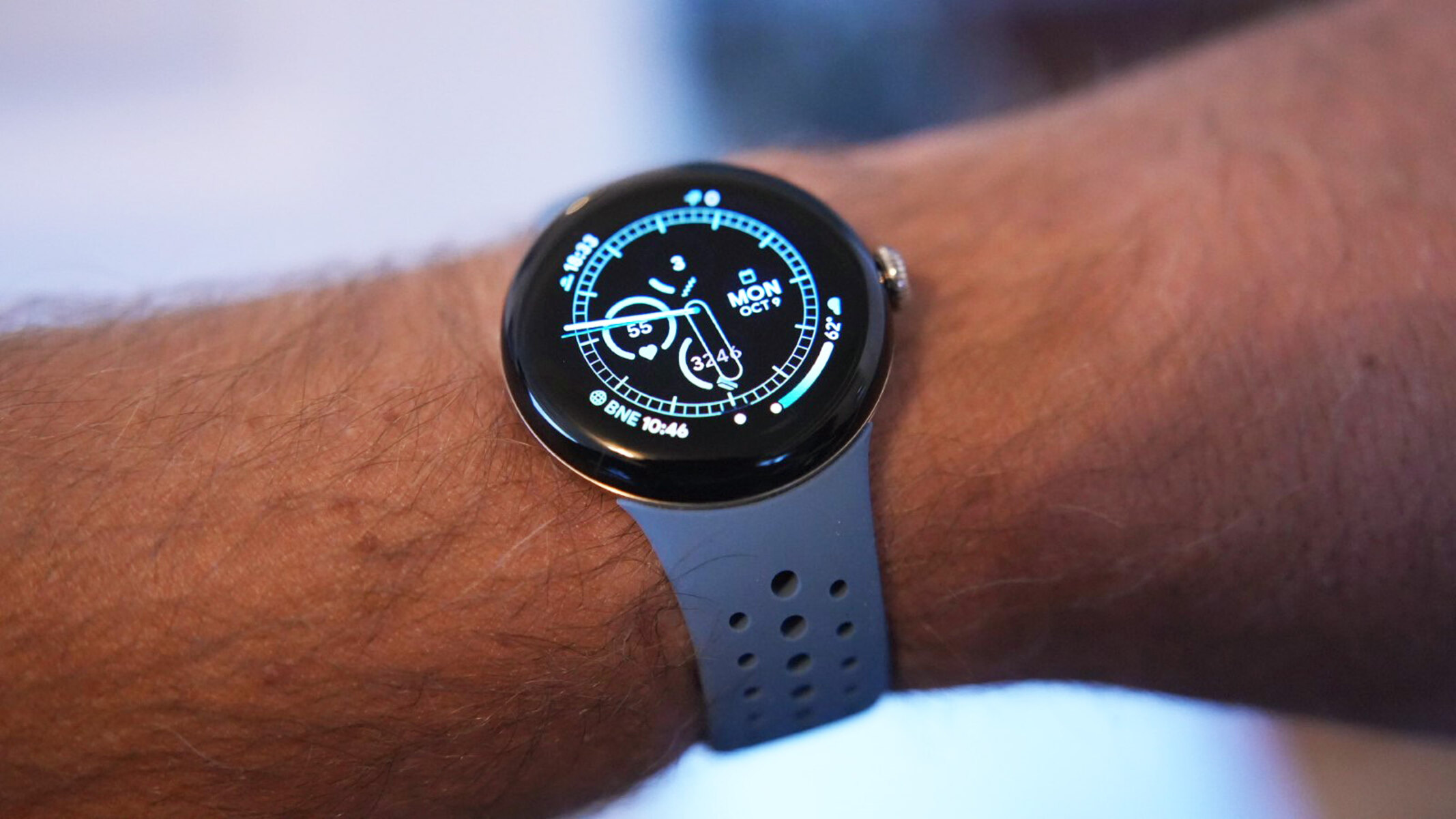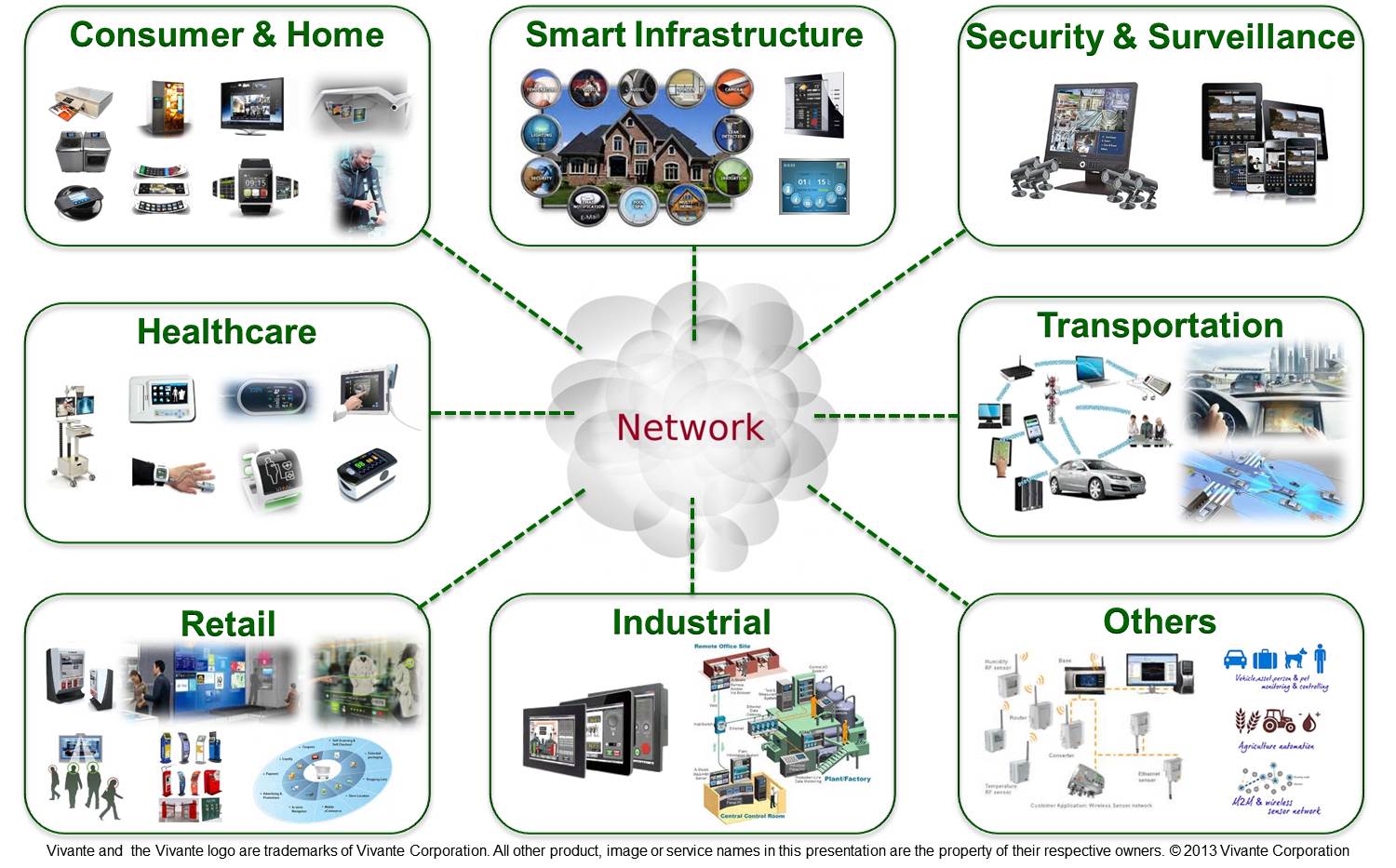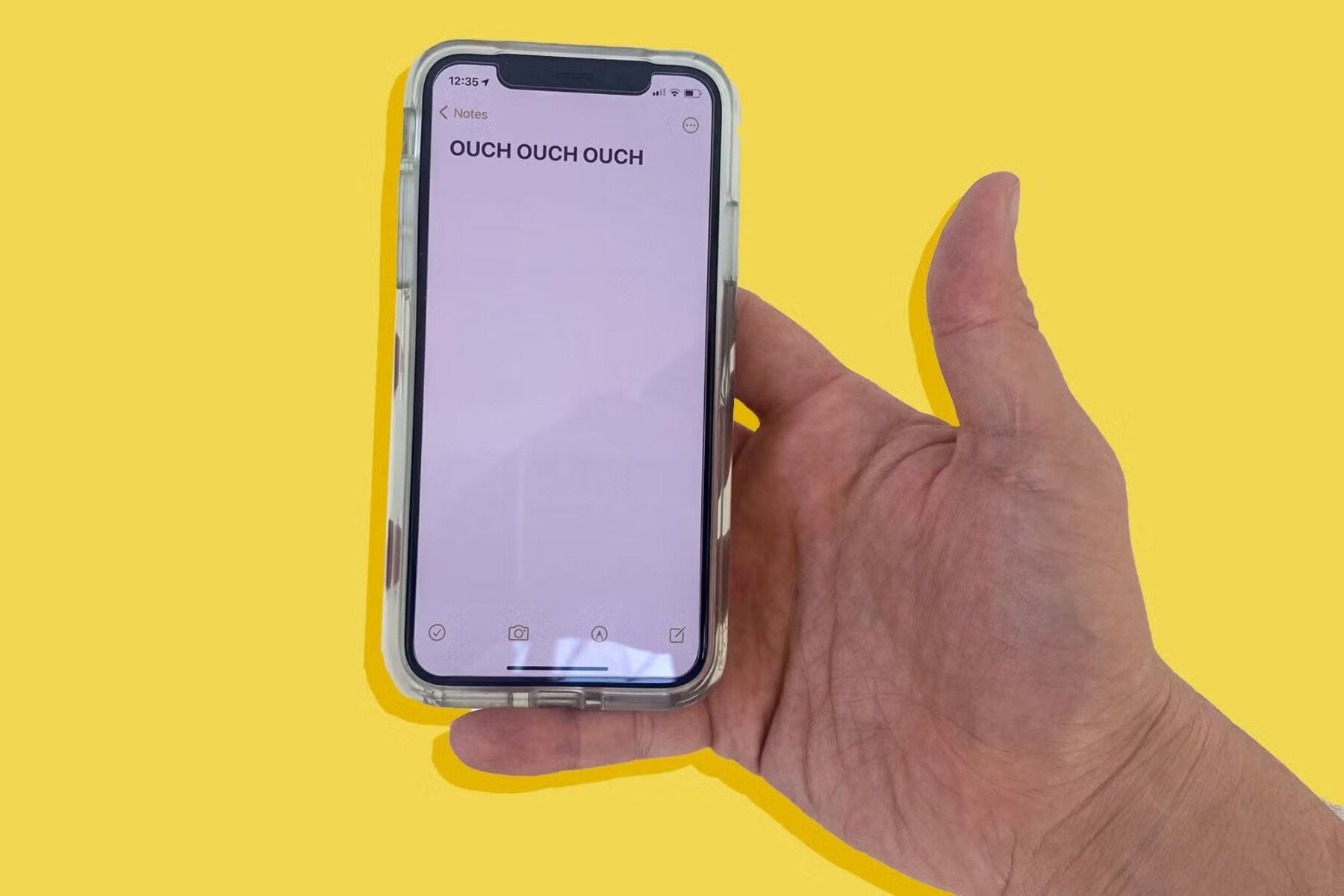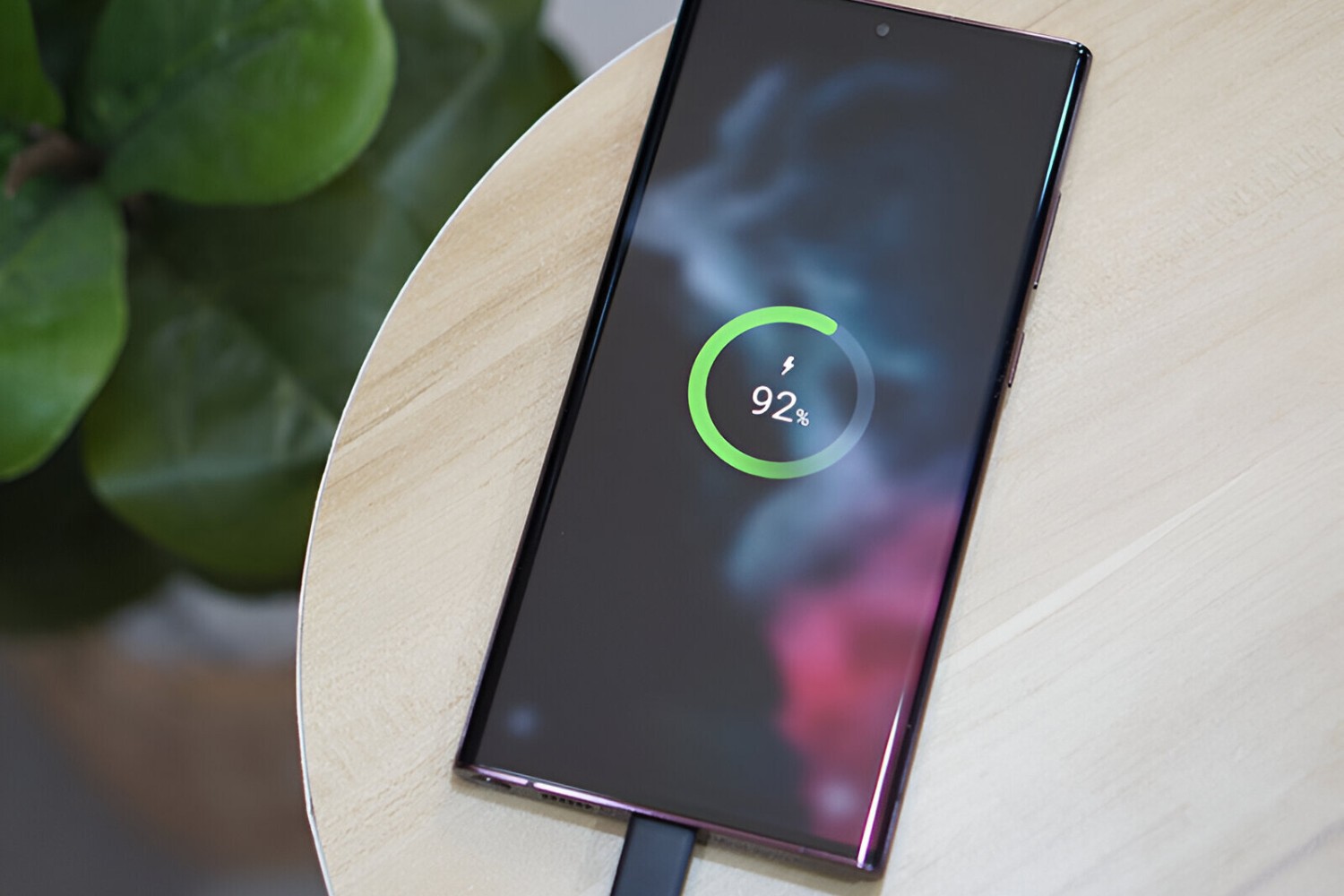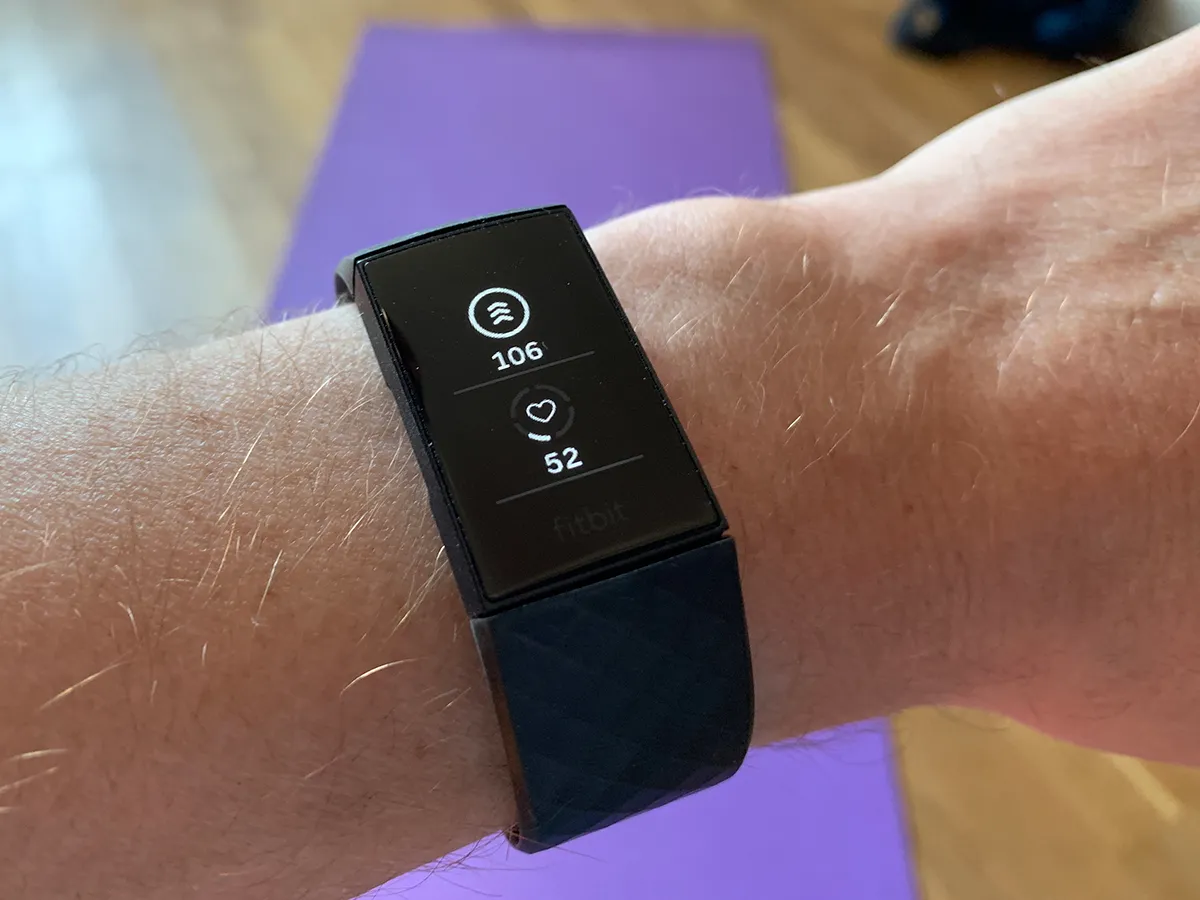Introduction
Technology has become an integral part of our everyday lives, and smartphones have revolutionized the way we communicate, work, and entertain ourselves. However, the influence of smartphones doesn’t stop there. These handheld devices have also made significant strides in improving healthcare and promoting well-being. With their convenience, portability, and advanced features, smartphones are transforming the landscape of healthcare, empowering individuals to take control of their health and make informed decisions.
From tracking fitness and monitoring vital signs to managing medications and accessing medical information, smartphones have emerged as invaluable tools in promoting healthier lifestyles and enhancing the quality of healthcare. Their versatility and easy accessibility have made it possible for people to engage in self-care and receive personalized assistance from anywhere, at any time.
In this article, we will explore the various ways in which smartphones can be utilized to improve healthcare. We will delve into the functionalities and applications that make smartphones indispensable in tracking health metrics, managing medical conditions, and seeking medical advice. Whether you are a fitness enthusiast or someone with a chronic illness, a smartphone can provide valuable resources and support to help you achieve your health goals.
As we delve into the different aspects of healthcare that smartphones enhance, it is important to note that these devices are not meant to replace professional medical care. They should be seen as complementary tools that empower individuals to take a more active role in their health. It is always important to consult with healthcare professionals for accurate diagnosis and treatment.
Let’s embark on this digital health journey and explore the ways in which smartphones can revolutionize our approach to wellness and healthcare management.
Tracking Fitness and Health
One of the most prominent ways smartphones can improve healthcare is by serving as a personal fitness and health tracker. With the wide availability of fitness apps, individuals can monitor their physical activity levels, track their progress, and set goals to improve their overall fitness.
Smartphones equipped with built-in accelerometer and GPS technology can accurately measure steps taken, distance traveled, and calories burned. These features allow users to keep a close eye on their daily activity levels and make informed decisions about their exercise routines. Fitness apps also provide valuable insights into sleep patterns, heart rate, and even stress levels, helping individuals optimize their physical well-being.
Beyond tracking fitness, smartphones can also assist in monitoring and managing chronic health conditions. For individuals with diabetes, smartphone apps can help track blood glucose levels, record insulin doses, and provide reminders for medication. This ensures that individuals with diabetes can stay on top of their treatment regimen and make necessary adjustments under medical supervision.
Furthermore, individuals with cardiovascular conditions can benefit from smartphone-enabled heart rate monitoring. By constantly tracking heart rate, individuals can identify irregularities and seek medical attention promptly when required. Some smartphones even come with built-in blood pressure monitors, allowing users to measure their blood pressure accurately and consistently wherever they are.
Overall, smartphones have transformed into powerful tools for tracking fitness and monitoring health metrics. They empower individuals to take charge of their physical well-being, make informed decisions, and seek appropriate medical attention when necessary. With the continuous development of new health and fitness apps, the role of smartphones in promoting active and healthy lifestyles is only expected to grow.
Monitor Heart Rate and Blood Pressure
Heart rate and blood pressure are crucial indicators of cardiovascular health. Traditionally, monitoring these vital signs required specialized medical equipment and regular visits to healthcare professionals. However, smartphones have now made it possible for individuals to track their heart rate and blood pressure in the comfort of their own homes.
Many smartphones today come equipped with built-in sensors and advanced technology that can measure heart rate accurately. By placing a finger on the smartphone’s camera lens, the device can capture subtle changes in skin color to determine heart rate. This feature enables individuals to monitor their heart rate regularly and effortlessly, providing valuable insights into their cardiovascular health.
Additionally, some smartphones also offer blood pressure monitoring capabilities. With the help of an external device, individuals can measure their blood pressure using their smartphones. These devices typically consist of an inflatable cuff that is connected to the smartphone, allowing for accurate and reliable blood pressure readings.
Regular monitoring of heart rate and blood pressure can help individuals detect irregularities or abnormalities in real-time. By identifying any fluctuations or high readings, individuals can promptly consult with healthcare professionals and take appropriate measures to maintain their cardiovascular health.
Moreover, the data collected from heart rate and blood pressure monitoring can be shared with healthcare providers during appointments, enabling more informed discussions regarding the individual’s overall health. This empowers individuals to actively participate in their own care and collaborate with medical professionals for personalized treatment plans.
The advent of heart rate and blood pressure monitoring on smartphones has revolutionized the way individuals can monitor their cardiovascular health. With easy access and accurate measurements, smartphones have made it more convenient than ever to keep a close eye on these vital signs, promoting early detection of any potential heart-related conditions and facilitating timely intervention.
Managing Medications and Reminders
Managing medications can be a challenging task, especially for individuals with multiple prescriptions or complex medication regimens. However, smartphones have simplified this process by offering various apps and features designed to help individuals stay organized and on top of their medications.
Medication management apps allow individuals to easily input their medication information, including dosage, frequency, and any special instructions. They also provide reminders and notifications to ensure that individuals take their medications on time. These reminders can be customized to suit individual preferences, such as specific times of the day or recurring reminders for medications that need to be taken regularly.
With the help of medication management apps, individuals can also track their medication history, including when doses were taken and any side effects experienced. This information can be invaluable during healthcare visits, as it allows individuals to accurately report their medication adherence and any issues they may have encountered.
Furthermore, some apps offer the option to connect with pharmacies and healthcare providers, enabling seamless prescription refills and facilitating communication regarding medication changes or adjustments. This level of integration ensures that individuals have a complete overview of their medication regimen and can access necessary support when needed.
For individuals caring for elderly parents or loved ones, medication management apps provide an additional layer of support. They allow caregivers to remotely monitor medication adherence, receive alerts if doses are missed, and manage prescription refills. This promotes peace of mind and ensures that individuals are receiving the necessary medications in a timely manner.
Overall, smartphones have become indispensable tools in managing medications and reminders. They streamline the process, reduce the risk of medication errors or missed doses, and provide individuals with a sense of control over their healthcare. Through reliable reminders and easy access to medication information, smartphones contribute to improved medication adherence and ultimately enhance overall health outcomes.
Telemedicine and Remote Consultations
Telemedicine has emerged as a game-changer in the healthcare industry, and smartphones play a pivotal role in facilitating remote consultations between patients and healthcare providers. With the advancement of technology, individuals can now access medical advice and consultations from the comfort of their own homes, using their smartphones as a medium of communication.
Telemedicine apps and platforms allow individuals to schedule virtual appointments with healthcare professionals, eliminating the need for in-person visits for non-emergency conditions. Whether it’s a routine follow-up, medication consultation, or even mental health support, individuals can easily connect with healthcare providers through their smartphones.
These virtual consultations not only provide convenience but also increase access to healthcare for individuals who may have geographical or physical limitations. Far-flung rural communities, individuals with mobility issues, or even busy professionals can all benefit from the flexibility and accessibility of telemedicine.
During telemedicine appointments, individuals can share relevant medical information, discuss symptoms, and receive personalized advice from healthcare professionals. Some platforms even offer the option to securely send photos or video recordings, enabling visual assessments and aiding in accurate diagnosis.
The use of smartphones in telemedicine also allows for virtual monitoring of health conditions. Individuals can use their smartphones to capture and share data such as blood glucose levels, heart rate, or even images of wounds. Healthcare providers can then remotely analyze this data and provide ongoing guidance and support.
Beyond individual consultations, smartphones have enabled telemedicine to expand into group sessions and support networks. Through video conferencing capabilities, individuals dealing with similar health conditions can connect, share experiences, and gain support from fellow patients or healthcare professionals specialized in their condition.
Telemedicine, enabled by smartphones, has revolutionized healthcare delivery by breaking down barriers of time and distance. This technology has made healthcare more accessible, efficient, and patient-centered, allowing individuals to receive the care they need, regardless of their location or other logistical challenges.
Health Apps and Self-Diagnosis
With the proliferation of health apps, individuals now have access to a vast array of tools and resources right at their fingertips. From symptom trackers to self-diagnosis apps, smartphones have made it easier than ever for individuals to gather information and make informed decisions about their health.
Health apps offer a wide range of functionalities designed to assist individuals in managing their health. Symptom tracking apps allow individuals to monitor and document symptoms they may be experiencing, providing valuable information that can be shared with healthcare professionals during consultations. These apps help individuals keep a record of their health concerns and empower them to actively participate in discussions about their symptoms.
Self-diagnosis apps are gaining popularity, enabling individuals to input their symptoms and receive potential explanations or recommendations. These apps use algorithms and databases to analyze the symptoms and provide possible diagnoses. While self-diagnosis apps can be useful for generating awareness and initial insights, it’s essential to exercise caution and consult with healthcare professionals for accurate diagnosis and treatment.
Moreover, health apps cater to specific needs, such as nutrition tracking, mental well-being, women’s health, and chronic disease management. These apps provide personalized recommendations, educational resources, and even reminders tailored to individual preferences and goals. They empower individuals to take charge of their health by providing tools and information to support their well-being.
Another significant aspect of health apps is their ability to facilitate preventive care and early detection. Many apps provide health assessments, risk calculators, and screening tools to identify potential health risks. By proactively monitoring their health using these apps, individuals can take steps to prevent or manage potential health issues before they escalate.
While health apps offer numerous benefits, it’s crucial to evaluate their credibility and reliability. Choosing apps developed by reputable organizations and ensuring they have undergone rigorous testing and validation is essential to ensure accurate information and safe recommendations.
Overall, health apps empower individuals to become active participants in managing their health. They provide tools, resources, and personalized guidance to support preventive care, symptom tracking, and even preliminary assessments. However, it’s important to remember that health apps should complement professional medical care and should not be a substitute for medical advice or diagnosis.
Health Records and Personal Health Information
Traditionally, managing personal health records involved keeping track of physical documents and relying on healthcare providers to access and share information. However, smartphones have revolutionized this process by allowing individuals to store, manage, and access their health records and personal health information with ease.
Health record apps and platforms enable individuals to securely store and organize their medical history, test results, prescription information, and other relevant health documents. By digitizing these records, individuals can access their health information anytime, anywhere, eliminating the need to carry physical files or rely on memory when discussing their medical history with healthcare professionals.
With the ability to store and manage health records on smartphones, individuals have greater control over their health information. They can easily share medical records with healthcare providers, eliminating the need for repeated tests or duplicate document requests. This streamlines communication and promotes better collaboration between healthcare professionals and individuals.
Furthermore, smartphones can serve as a repository for personal health information beyond medical records. Individuals can track and store data related to fitness activities, dietary habits, sleep patterns, and other lifestyle factors. This comprehensive view of health information provides a holistic perspective and enables individuals to make more informed decisions about their well-being.
Protecting the privacy and security of personal health information is of utmost importance. Health record apps and platforms incorporate encryption and other security measures to ensure that sensitive health data is protected from unauthorized access. Individuals should always choose reputable apps and platforms and follow best practices for password management and data security.
The ability to access and manage health records and personal health information on smartphones has profound implications for healthcare. It promotes patient engagement, improves healthcare coordination, and facilitates informed decision-making. By having a comprehensive view of health information readily available, individuals can actively participate in their care, leading to better health outcomes.
Mental Health and Well-being Apps
The importance of mental health and well-being cannot be overstated, and smartphones have become valuable tools in this realm. Mental health and well-being apps provide individuals with accessible resources and support to manage stress, improve mood, and promote overall mental well-being.
These apps offer a wide range of features and activities that help individuals practice self-care and develop healthy coping mechanisms. Meditation and mindfulness apps guide individuals through relaxation exercises, breathing techniques, and meditation sessions, fostering a sense of calm and reducing stress levels.
Many mental health apps also provide tools for mood tracking and self-reflection. Users can log their emotions, identify triggers, and track patterns over time. These features enable individuals to gain insight into their mental well-being, detect warning signs, and take proactive steps to manage their emotions effectively.
Additionally, mental health apps offer educational resources and interactive modules to promote mental health literacy. They provide information about various mental health conditions, coping strategies, and techniques to enhance resilience. Users can access articles, videos, and podcasts that cater to their specific needs and interests.
Another notable feature of mental health apps is the option to connect with support communities and professionals. These apps facilitate peer support, where individuals can connect with others who may be experiencing similar challenges. Moreover, some mental health apps offer access to online therapy or counseling services, allowing individuals to receive professional support in a convenient and confidential manner.
While mental health apps can be beneficial, it’s important to recognize that they are not a substitute for professional mental health care. They should be seen as complementary tools that supplement therapy or counseling and provide additional support on a day-to-day basis.
By leveraging the power of smartphones, mental health and well-being apps empower individuals to take a proactive approach to their mental well-being. They provide tools, resources, and a supportive community to promote self-care, manage stress, and foster resilience. With the increasing focus on mental health, these apps play a crucial role in promoting emotional well-being and improving quality of life.
Accessibility and Assisted Living
Smartphones have significantly enhanced accessibility and assisted living for individuals with disabilities or special needs. These devices offer a wide range of features and applications that cater to different accessibility requirements and empower individuals to live more independently.
For individuals with visual impairments, smartphones come with built-in accessibility features such as screen readers and magnification tools. These features enable users to navigate through their device, read text, and interact with apps using voice commands or gestures. Additionally, specialized apps provide real-time object recognition, color identification, and text-to-speech capabilities, further enhancing accessibility for visually impaired individuals.
Smartphones also offer features that benefit individuals with hearing impairments. They support different forms of communication, including text messages, video calls, and closed captioning. Furthermore, apps and devices can be paired with hearing aids or streamers, allowing individuals to amplify sounds and customize their audio experience.
Assistive technology apps are available for individuals with physical disabilities, offering alternative input methods, voice control, and gesture recognition. These apps can transform smartphones into assistive devices, enabling individuals to perform various tasks, such as writing, typing, and controlling their environment.
Smartphones have also been instrumental in providing safety and emergency support for individuals with disabilities or special needs. GPS tracking capabilities allow caregivers or emergency services to locate individuals in need of assistance quickly. Dedicated apps offer features such as panic buttons, fall detection, and emergency contacts, providing peace of mind for both individuals and their caregivers.
Moreover, smartphones have facilitated remote caregiving and assisted living for elderly individuals. They enable remote monitoring of health conditions, medication reminders, and emergency alerts. Video calling and communication apps connect elderly individuals with their loved ones, reducing social isolation and providing emotional support.
By incorporating accessibility features and assisted living apps, smartphones empower individuals with disabilities to overcome barriers, participate in society, and live more independently. They promote inclusivity by providing tools and resources that cater to different accessibility needs, enhancing quality of life and promoting equal opportunities.
Conclusion
The integration of smartphones into the healthcare landscape has ushered in a new era of accessibility, convenience, and empowerment. These handheld devices have transformed into powerful tools that enhance various aspects of healthcare and well-being.
From tracking fitness and health metrics to managing medications and accessing health information, smartphones have become invaluable companions for individuals seeking to take control of their own health. The wide range of health apps and features available provide personalized support, facilitate remote consultations, and offer resources for mental health and well-being.
Smartphones have also revolutionized accessibility and assisted living, catering to the specific needs of individuals with disabilities or special requirements. By incorporating accessibility features and assistive technology, these devices empower individuals to live more independently, overcome barriers, and participate fully in society.
While smartphones have certainly revolutionized healthcare, it is important to remember that they should not replace professional medical care. They should be seen as complementary tools that augment healthcare practices and enhance individual engagement in their own health. Consulting with healthcare professionals and following their guidance is crucial for accurate diagnosis, treatment, and overall well-being.
The future of healthcare is undoubtedly intertwined with smartphone technology. As these devices continue to advance with new features and capabilities, they will further empower individuals, bridge gaps in healthcare accessibility, and promote a holistic approach to well-being.
As we harness the potential of smartphones to improve healthcare, it is essential to prioritize privacy, security, and the reliability of health-related apps and platforms. Consumers and developers alike must ensure that sensitive health information is protected, and that information and resources provided by apps are credible and evidence-based.
Overall, smartphones have emerged as valuable tools in our journey towards better healthcare and well-being. With their convenience, versatility, and advanced features, they have transformed the way we track our health, manage conditions, connect with healthcare professionals, and access information. By embracing the opportunities presented by smartphones, we can take charge of our health, make more informed decisions, and lead healthier, more empowered lives.











